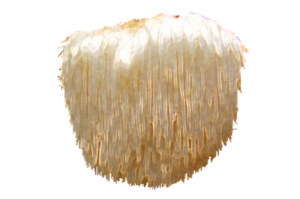Sung Phil Kim, Mi Young Kang, Jae Ho Kim, Seok Hyun Nam, and Mendel Friedman
Abstract
We investigated antitumor effects of the following four extracts of freeze-dried Hericium erinaceus mushrooms in Balb/c mice intracutaneously transplanted on the backs with CT-26 colon cancer cells: HWE, hot water extraction by boiling in water for 3 h; MWE, microwaving in 50% ethanol/water at 60 W for 3 min; and ACE and AKE, boiling in 1% HCl or 3% NaOH for 2 h. HWE and MWE with a higher content of β-glucans, determined by an assay kit, than ACE and MKE were active in all bioassays. Gas chromatography/mass spectrometry analyses showed the presence of 40, 27, 16, and 13 compounds, respectively, in the four extracts. Daily intraperitoneal (ip) injections of HWE and MWE for 2 weeks significantly reduced tumor weights by 38 and 41%. Tumor regressions were associated with changes in the following cancer biomarkers as compared to phosphate buffer (PBS)-treated control mice: 2.7- and 2.4-fold increases in cytolytic activity of splenic natural killer (NK) cells; restored nitric oxide production and phagocytosis in peritoneal macrophages to 95–98% of normal levels; ∼2-fold increase in released pro-inflammatory cytokines tumor necrosis factor-α, interleukin-1β, and interleukin-6 from macrophages; and ∼56 and ∼60% reductions in the number of blood vessels inside the tumor. The pro-angiogenic factors vascular endothelial growth factor (VEGF), cyclooxygenase 2 (COX-2), and 5-lipoxygenase (5-LOX) were also significantly reduced in mRNA and protein expression by tumor genes. Enzyme-linked immunosorbent assay of tumor cells confirmed reduced expression of COX-2 and 5-LOX (32 and 31%). Reduced COX-2 and 5-LOX expression down-regulated VEGF expression, resulting in inhibition of neo-angiogenesis inside the tumors. The results indicate that induction of NK activity, activation of macrophages, and inhibition of angiogenesis all contribute to the mechanism of reduction of tumor size.
Reference:
J. Agric. Food Chem., 2011, 59 (18), pp 9861–9869

